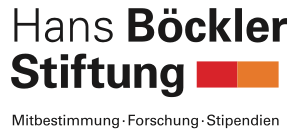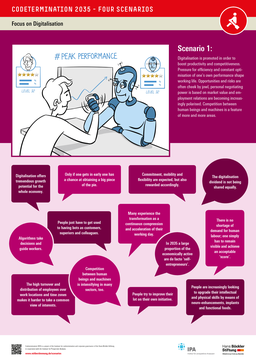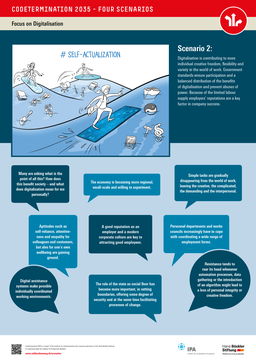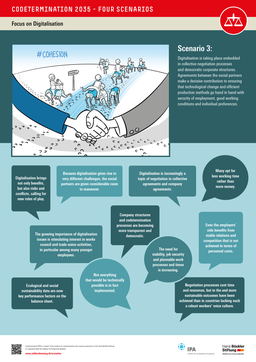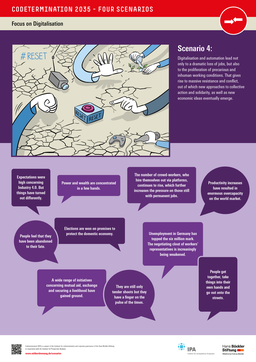Scenarios
Futures of Digitalisation
Four scenarios describe different, but equally plausible ‘futures’ of digitalisation in the world of work. They bring to light various opportunities and challenges that in future could play more or less important roles for codetermination actors. They offer a frame of reference for assessing current developments and existing strategies for action and for opening up more creative scope for successful codetermination.
The digitalisation of the world of work is in full swing. But it is not a force of nature. How industrial relations and work processes will change in the course of this advance depends decisively on how digital technologies are used and with what aims, the social context in which they unfold and how employees’ interests are taken on board. How can working that is flexible with regard to both time and place really benefit workers themselves? What kinds of data will be gathered and what will it be used for? What kinds of demands will this make on training and further training? How can we ensure that algorithms and the platform economy do not conspire to dehumanise work and increase precarity of employment? How can structural change – especially where jobs are lost in the wake of digitalisation and automation – be made more socially equitable? These are only a few of the settings in which different interests have to be balanced and fair rules of play negotiated. And we can also be sure that the structures and tools of codetermination itself will also change as a result of digitalisation.
Ged DavisScenarios are stories about the future, but their purpose is to make better decisions in the present.
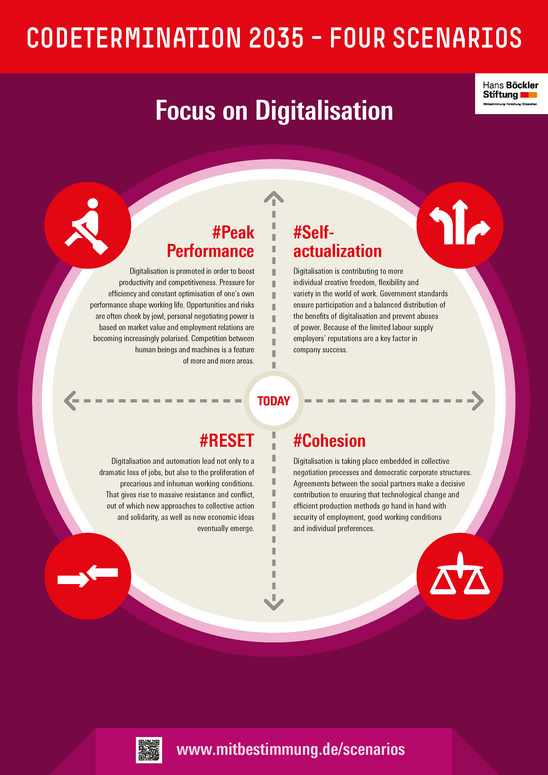
The scenarios presented in this report are part of the project ‘Codetermination 2035 – Four Scenarios’ that the Hans-Böckler-Stiftung has launched with the Institute for Prospective Analyses. They illustrate possible changes and future conditions in the sphere of ‘digitalisation’. The scenarios bring to light different opportunities and challenges that could play important roles for codetermination actors in the future. They offer a frame of reference for evaluating current developments and existing action strategies and for opening up more creative scope for successful codetermination.
Scenarios cannot predict the future. But they can help us to cope better with the uncertainties of an open future. We become more confident in our assessment of how decisions we take today will affect work and living tomorrow. In this sense we regard these focus scenarios as a platform for dialogue on the question of how we can help guide digitalisation in the right direction.
Codetermination 2035 - Four scenarios: Focus on Digitalisation
Listen to scenario trailer:
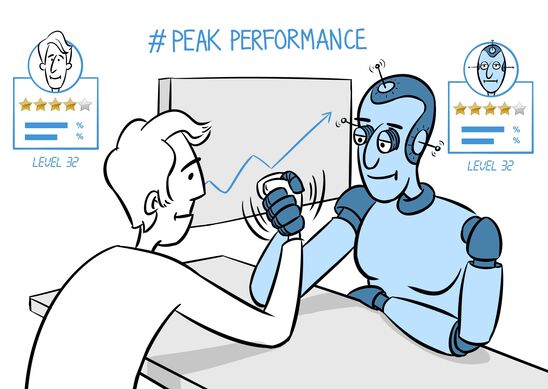
Scenario I: #Peak Performance
Digitalisation is promoted in order to boost productivity and competitiveness. Pressure for efficiency and constant optimisation of one’s own performance shape working life. Opportunities and risks are often cheek by jowl, personal negotiating power is based on market value and employment relations are becoming increasingly polarised. Competition between human beings and machines is a feature of more and more areas.
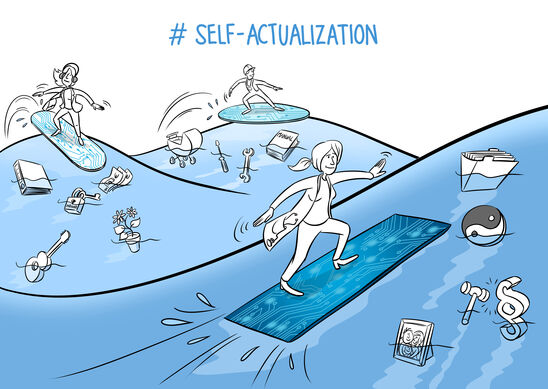
Scenario II: #Self-actualization
Digitalisation is contributing to more individual creative freedom, flexibility and variety in the world of work. Government standards ensure participation and a balanced distribution of the benefits of digitalisation and prevent abuses of power. Because of the limited labour supply employers’ reputations are a key factor in company success.
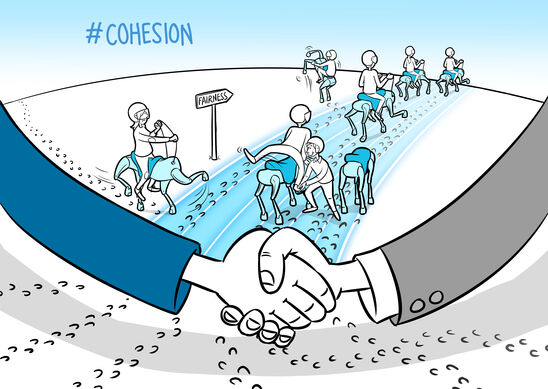
Scenario III: #Cohesion
Digitalisation is taking place embedded in collective negotiation processes and democratic corporate structures. Agreements between the social partners make a decisive contribution to ensuring that technological change and efficient production methods go hand in hand with security of employment, good working conditions and individual preferences.
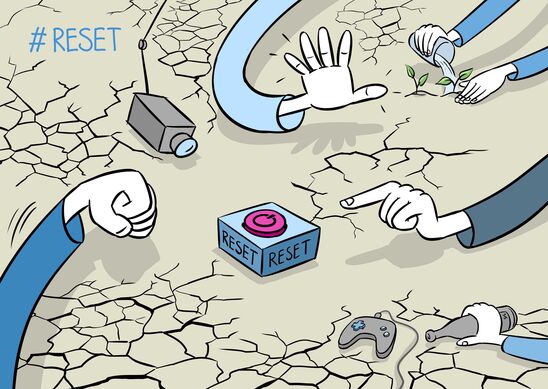
Scenario IV: #Reset
Digitalisation and automation lead not only to a dramatic loss of jobs, but also to the proliferation of precarious and inhuman working conditions. That gives rise to massive resistance and conflict, out of which new approaches to collective action and solidarity, as well as new economic ideas eventually emerge.
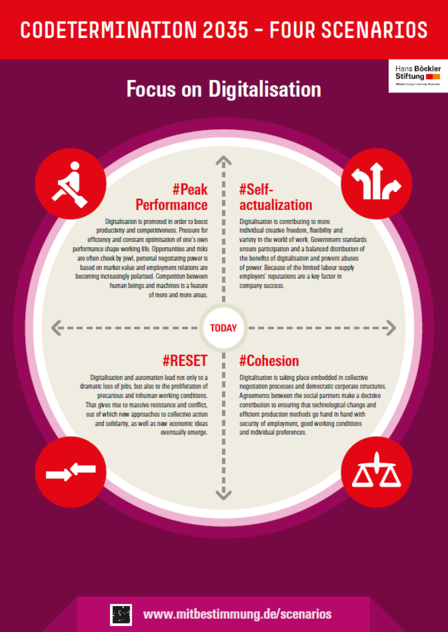
CODETERMINATION 2035 – FOUR SCENARIOS
Focus on Digitalisation
Institute for Codetermination and Corporate Governance (I.M.U.) of the Hans-Böckler-Stiftung in cooperation with the Institute for Prospective Analyses (eds)

